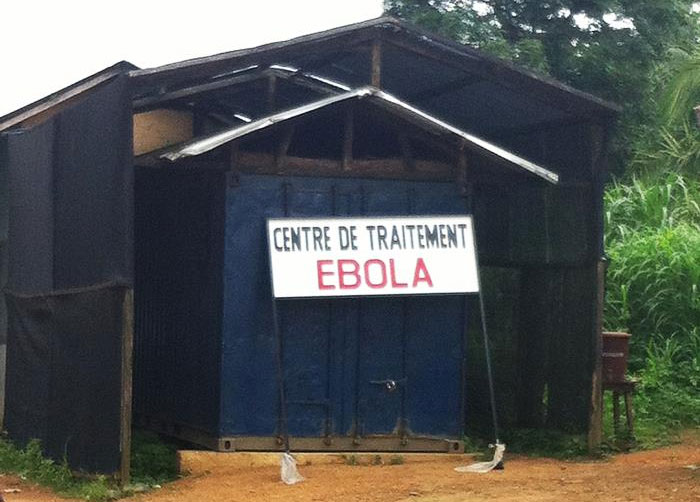Will the New Ebola Vaccine Help to End Outbreaks?

Experts welcomed the news today that a recent trial of an Ebola vaccine suggests the shot is highly effective at preventing the disease, and said that the the vaccine may stem outbreaks in the future even if not everyone is vaccinated.
The study shows that the new vaccine, known as VSV-ZEBOV, "may help finally extinguish this [Ebola] outbreak," said Dr. Amesh Adalja, an infectious-disease specialist and a senior associate at the University of Pittsburgh Medical Center's Center for Health Security.
In the study, researchers in Guinea vaccinated people who had contact with people who were infected with Ebola, as well as the contacts of those contacts — a technique known as "ring vaccination" (referring to vaccinating the ring of people surrounding a case).
The researchers measured the new vaccine's effectiveness by comparing two groups of people who were all in such rings of contact — one group included about 2,000 people who were vaccinated immediately after a person with Ebola was diagnosed, whereas the comparison group included 1,500 people who were vaccinated 21 days after a person with Ebola was identified (the so-called "delayed vaccine" group). The study was conducted between April and July of this year.
No new cases of Ebola were found 10 or more days after vaccination in the immediate vaccination group, whereas 16 people developed Ebola in the delayed vaccination group. This shows that for the people who received the vaccination immediately, the vaccine was 100 percent effective, according to the study, published today (July 31) in the journal The Lancet. [10 Deadly Diseases That Hopped Across Species]
"The study is really great news," Adalja said. "There was such a dramatic difference," between the immediate and the delayed vaccination group, said Adalja, who also noted that it's rare for a study to find a vaccine has a 100 percent protection rate.
The new findings are part of a preliminary analysis of the vaccine trial. If the results are confirmed by future research, it could mean that ring vaccination — the same strategy used decades ago to eradicate smallpox — will be used in future Ebola outbreaks, Adalja said.
Get the world’s most fascinating discoveries delivered straight to your inbox.
That's important because "you don't have to have the entire population vaccinated, you can just prioritize the contacts of the individuals infected," Adalja said. "It makes it a much easier task to stop an outbreak," he told Live Science. "It's exactly how they got smallpox to be beaten off the planet."
Dr. Jesse Goodman, a professor of medicine at Georgetown University Medical Center in Washington D.C., said although more information from the study is needed, "this is very good news today and suggests that the [new vaccine] is effective and can be an important tool in outbreak control, including through ring vaccination."
However, some questions still remain. For example, there were more than 1,000 people in the study who were not vaccinated at all — some did not consent to vaccination, and others did not show up for vaccination. In the researchers' analysis, they included these people in the "delayed" vaccination group, but it's not known whether this affected the results, Goodman said.
In addition, the researchers identified the people who developed Ebola during the study through the regular disease surveillance methods that are used in Guinea, but these methods might miss some cases, particularly if the cases were less severe, Goodman said.
Still, the researchers note that so far, they've been able to track everyone in the study (and no one has been lost during follow-up). This makes it likely that they've identified all the people who have developed Ebola during the trial, Adalja said.
One person in the study developed a fever that appeared to be related to the vaccine itself. It will be important to conduct more research on the side effects of the vaccine, so that doctors and patients can learn how common these side effects are, Adalja said.
Follow Rachael Rettner @RachaelRettner. Follow Live Science @livescience, Facebook & Google+. Original article on Live Science.

Rachael is a Live Science contributor, and was a former channel editor and senior writer for Live Science between 2010 and 2022. She has a master's degree in journalism from New York University's Science, Health and Environmental Reporting Program. She also holds a B.S. in molecular biology and an M.S. in biology from the University of California, San Diego. Her work has appeared in Scienceline, The Washington Post and Scientific American.
 Live Science Plus
Live Science Plus





